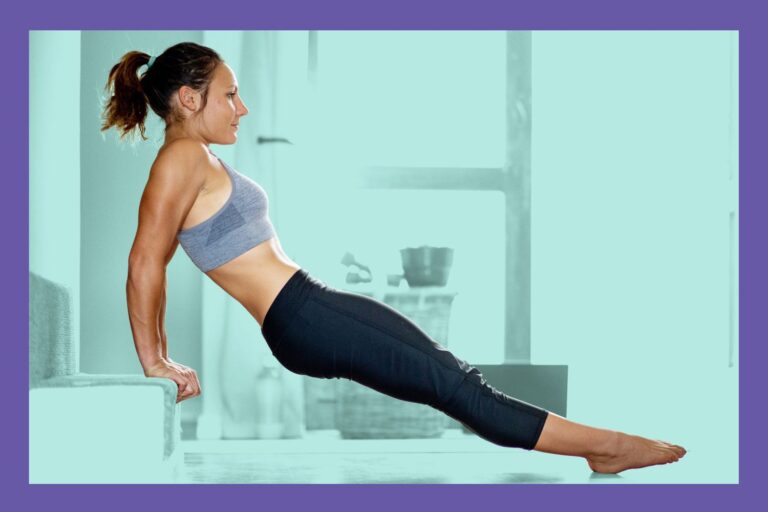The best sports to start at 14 are basketball, soccer, swimming, and track and field. These sports offer a range of physical activity, teamwork, and competition that can benefit teenagers in their overall development.
Whether it’s shooting hoops, dribbling a ball, swimming laps, or sprinting on the track, these sports provide opportunities for skill-building, exercise, and personal growth. Engaging in sports at a young age can teach important values such as discipline, perseverance, and teamwork.
Moreover, starting at 14 allows teenagers to develop and hone their skills over time, potentially leading to future opportunities in competitive levels and even college scholarships. By participating in these sports, teenagers can improve their physical fitness, build social connections, and cultivate a sense of achievement as they work towards their goals.

Credit: www.amazon.com
1. Importance Of Sports For Teens
Sports are essential for teens as they promote physical fitness, enhance social skills, and instill discipline. At 14, the best sports to start include basketball, soccer, swimming, tennis, and track and field. These activities provide opportunities for growth, teamwork, and personal development.
The teenage years are a crucial time for physical and mental development. Engaging in sports activities during this phase not only promotes a healthy lifestyle but also offers a range of benefits that contribute to a teenager’s overall growth and well-being.
1.1 Physical Health Benefits
Sports play an instrumental role in improving the physical health of teenagers. Regular participation in sports activities enhances their cardiovascular fitness, builds endurance, and strengthens muscles and bones. It also helps in maintaining a healthy weight, reducing the risk of obesity, heart disease, and other illnesses.
1.2 Mental Health Benefits
Besides the physical advantages, sports have a positive impact on mental health as well. Engaging in sports activities at 14 can give teenagers an emotional outlet to relieve stress and manage their emotions effectively. Physical exertion releases endorphins, which are natural mood boosters, reducing the risk of developing mental health issues like anxiety and depression.
1.3 Skill Development
Participating in sports at an early age allows teenagers to develop a wide range of skills. Sports not only enhance their coordination, agility, and balance but also promote discipline, teamwork, and leadership qualities. These skills acquired through sports are transferable to various aspects of life, including academics, career, and personal relationships.
2. Factors To Consider When Choosing A Sport
Choosing a sport to start at the age of 14 can be an exciting and daunting task. There are several factors to consider that will help you make the right decision. By taking into account your personal interests and preferences, physical attributes and strengths, time commitment, as well as accessibility and resources, you can ensure that you choose a sport that is both enjoyable and suitable for you.
2.1 Personal Interests And Preferences
When deciding on a sport to start at 14, it’s important to consider your personal interests and preferences. Think about the activities you enjoy, whether you’re drawn to team sports, individual sports, or a combination of both. Consider what makes you feel motivated and fulfilled. If you have a passion for a particular sport or have always wanted to try something new, now is the perfect time to dive in and explore your interests.
2.2 Physical Attributes And Strengths
Your physical attributes and strengths can play a significant role in choosing the right sport. Take into account your natural abilities, such as speed, endurance, agility, and coordination. Consider whether you have a preference for activities that require strength or flexibility. By aligning your physical attributes with the demands of different sports, you can find a sport that suits your abilities and allows you to excel.
2.3 Time Commitment
The time commitment required for a sport is another vital factor to consider. Think about how much time you’re willing to dedicate to training, practice sessions, and competitions. Different sports have varying time requirements, with some demanding more hours per week than others. Be realistic about the time you can commit, considering your schoolwork, extracurricular activities, and social life. Finding a balance between your sport and other responsibilities will ensure you can fully enjoy and benefit from your chosen activity.
2.4 Accessibility And Resources
Accessibility and resources are crucial considerations when choosing a sport. Evaluate the availability of facilities and clubs in your local area. Consider the level of coaching expertise and the support system available for the sport you’re interested in. Look into the cost of equipment and any financial commitments associated with your chosen sport. By assessing these factors, you can ensure that you have access to the necessary resources to pursue your sport and have a fulfilling experience.
3. Best Sports For 14-year-olds
Discover the best sports to start at 14 for aspiring athletes. Explore opportunities in basketball, soccer, and swimming, suitable for 14-year-olds to develop their skills and excel in a supportive environment.
At the age of 14, children are at a crucial stage in their physical and mental development. Engaging in sports activities not only helps them stay fit but also allows them to learn important life skills such as teamwork, discipline, and perseverance. Here are some of the best sports for 14-year-olds to consider:
3.1 Soccer
Soccer, also known as football in many countries, is a popular team sport that provides numerous benefits for teenagers. From improving cardiovascular fitness to enhancing coordination and agility, soccer offers a full-body workout. Additionally, playing soccer helps teenagers develop social skills and learn the value of teamwork.
3.2 Basketball
Basketball is another fantastic sport for 14-year-olds to consider. This fast-paced game not only improves cardiovascular endurance but also enhances coordination, strength, and agility. Engaging in basketball helps teenagers develop their problem-solving skills and decision-making abilities, as they are required to analyze the game and make split-second decisions.
3.3 Swimming
Swimming is a low-impact sport that offers incredible benefits for teenagers. It is a great way to improve overall fitness, build muscle strength, and enhance lung capacity. Swimming also promotes flexibility and improves posture. Moreover, it is an excellent sport for those who prefer individual performance rather than team sports.
3.4 Track And Field
Track and field events are ideal for teenagers who enjoy individual sports while maintaining a competitive edge. Engaging in track and field events such as sprinting, long jump, and high jump helps develop speed, agility, and overall endurance. These events promote discipline and self-motivation, allowing teenagers to set personal goals and work towards achieving them.
3.5 Martial Arts
Martial arts, such as karate, taekwondo, or judo, provide an excellent way for 14-year-olds to channel their energy and build self-discipline. These sports improve flexibility, balance, and overall physical fitness. Martial arts training also focuses on self-defense techniques, enhances confidence, and teaches teenagers valuable lessons about respect, discipline, and perseverance.

Credit: thefitmonkey.com
4. Training And Skill Development
Training and skill development are crucial for young athletes starting in sports at the age of 14. Proper training not only helps them build a strong foundation but also enhances their skills and prepares them for future challenges. In this section, we will explore various aspects of training and skill development that can benefit young athletes.
4.1 Finding A Coach Or Mentor
Having a coach or mentor is essential for young athletes as they begin their sports journey. A coach provides guidance, instruction, and motivation to help athletes reach their full potential. Here are a few things to consider when finding a coach or mentor:
- Look for someone with experience and expertise in the specific sport.
- Check their coaching philosophy and ensure it aligns with your goals.
- Observe their coaching style and determine if it suits your learning preferences.
- Consider their availability and commitment to your development.
4.2 Structured Training Programs
Structured training programs provide young athletes with a systematic approach to skill development and physical conditioning. These programs are designed to optimize performance and minimize the risk of injury. Here are some benefits of following a structured training program:
- Progressive training plans that gradually increase difficulty.
- A variety of drills and exercises to improve specific skills.
- Focused training on strength, agility, endurance, and flexibility.
- Proper rest and recovery periods to prevent overtraining.
4.3 Cross-training And Conditioning
Cross-training and conditioning are valuable components of training for young athletes. Cross-training involves participating in activities outside their primary sport to develop overall athleticism and prevent burnout. Conditioning focuses on improving cardiovascular fitness and muscular strength. Benefits of cross-training and conditioning include:
- Enhanced overall physical fitness and performance.
- Reduced risk of overuse injuries by engaging different muscle groups.
- Mental freshness and renewed motivation.
- Broadened skill set and versatility in different sports.
4.4 Setting Goals And Tracking Progress
Setting goals and tracking progress is instrumental in keeping athletes motivated and focused on their development. Here are a few tips for goal setting and progress tracking:
- Set specific, measurable, attainable, relevant, and time-bound (SMART) goals.
- Break down long-term goals into short-term objectives.
- Regularly assess and track progress through performance evaluations.
- Adjust goals and strategies based on progress and feedback.
By incorporating these training and skill development strategies into their sports journey, young athletes can maximize their potential and pave the way for future success.
5. Overcoming Challenges And Staying Motivated
Starting a new sport at the age of 14 can be both exciting and daunting. As you embark on this journey, it’s important to remember that challenges and setbacks are natural parts of the learning process. Staying motivated and overcoming obstacles will not only help you improve your skills but also build resilience and develop a strong mindset. In this section, we will discuss some key strategies to help you navigate through setbacks, build mental toughness, find support, and enjoy the process.
5.1 Dealing With Setbacks And Failures
Setbacks and failures are learning opportunities that can make you stronger and more determined. To effectively deal with them:
- Embrace the growth mindset mindset and view setbacks as opportunities for growth and improvement.
- Focus on the process rather than the outcome, and celebrate small wins along the way.
- Learn from your mistakes by identifying what went wrong and developing strategies to overcome those challenges.
- Seek guidance from your coach or teammates, who can provide valuable insights and support.
5.2 Developing Mental Toughness
Mental toughness is crucial to withstand the pressures and challenges that come with sports. Here are some ways to develop mental toughness:
- Set clear goals for yourself. Define what you aim to achieve and create a plan to work towards them.
- Practice positive self-talk. Use affirmations and encouraging words to boost your confidence and maintain a positive mindset.
- Visualize success. Imagine yourself overcoming obstacles and achieving your goals, as this can help you stay motivated and focused.
- Control your emotions. Learn to manage stress, frustration, and anxiety by using relaxation techniques or seeking support from a mental coach.
5.3 Building A Support System
A strong support system is vital for staying motivated and overcoming challenges. Here’s how you can build one:
| Friends and Family | Teammates | Coaches and Mentors |
|---|---|---|
| Share your achievements and difficulties with your loved ones. They can provide emotional support and encouragement. | Develop strong bonds with your teammates. They will understand the challenges you face and provide motivation during tough times. | Seek guidance from experienced coaches and mentors. They can offer valuable advice, training techniques, and motivation. |
5.4 Finding Joy In The Process
In the pursuit of sports, it’s essential to find joy in the process rather than solely focusing on the end result. Here are some tips to help you enjoy every step of your sporting journey:
- Experiment with different techniques and strategies to keep things interesting and challenging.
- Celebrate small milestones and improvements to stay motivated and inspired.
- Remind yourself of why you started this sport and the joy it brings you.
- Stay present in the moment during practices and competitions, appreciating the experience and learning opportunities.

Credit: www.ddsportsacademy.com
Frequently Asked Questions For Best Sports To Start At 14
Is 14 Too Late To Start A Sport?
No, 14 is not too late to start a sport. Many athletes begin their sports journey later in life and still achieve success. It’s never too late to pursue your passion and develop your skills in a sport. Stay committed and work hard, and you can excel regardless of your starting age.
How Many Sports Should A 14 Year Old Play?
A 14-year-old should play as many sports as they enjoy and can handle without feeling overwhelmed. It’s important to prioritize their physical and mental well-being.
What Is The Best Sport For A Beginner?
The best sport for a beginner depends on personal preference and interests, but popular options include swimming, tennis, and running. These sports are easy to learn, provide a good workout, and offer various skill levels for beginners to progress.
Is 13 Too Late To Start A New Sport?
No, 13 is not too late to start a new sport. It’s a great age to begin and many successful athletes have started later in life. With dedication and practice, you can excel in your chosen sport and achieve your goals.
So go for it!
Which High School Sports Are Ideal to Start at Age 14 for Maximum Potential?
Starting high school sports at age 14 can maximize athletic potential. Sports like track and field, basketball, and soccer build physical skills and teamwork while leaving room for rapid improvement. These are often considered among the best high school sports to play for students aiming to excel both athletically and personally.
Conclusion
To sum up, starting a sport at the age of 14 is a great opportunity for personal growth and development. Whether it’s soccer, basketball, swimming, or any other sport, the benefits are immense. It promotes physical fitness, mental resilience, teamwork, and discipline.
Moreover, it helps build lifelong friendships and enhances self-confidence. So, don’t hesitate to choose the sport that resonates with you and embark on this exciting journey of athleticism and self-discovery.




